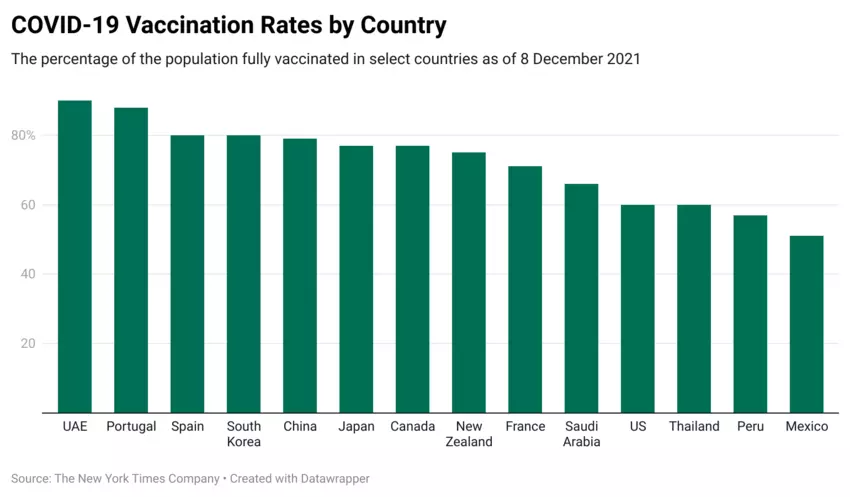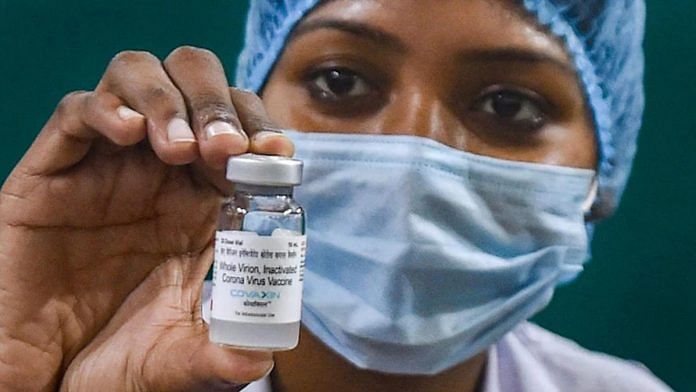An actor on an American soap opera recently sought to sidestep a COVID-19 vaccination mandate by doing something fairly common: requesting a religious exemption. Less common was the way his employment was killed off in a dramatic tunnel collapse after the request was denied.
Applications for religious exemptions are on the rise, amid new mandates designed to check the Omicron variant and contain the pandemic. New York City has unveiled plans for a COVID-19 vaccine mandate for all private employers, Greece has a mandate lined up for people over 60, and South Africa is considering its own versions.
Employers and schools may struggle to discern the requests for religious exemptions from mandates like these that are genuinely sincere – and puzzle over how to respect an applicant’s beliefs while also preventing the harm they may inflict on others. Some places simply decided this isn’t possible, and stopped making faith-based dispensations.
Research overwhelmingly indicates that getting vaccinated is the best way to stem the spread of the coronavirus. Most religious leaders are framing their messaging accordingly.
“It’s actually a mitzvah,” one rabbi told a reporter, referring to deeds performed to fulfil divine commandments.
Yet, applications for religious exemptions continue to roll in. The US Air Force, for example, has received nearly 5,000 from active-duty airmen.
In search of a religious reason to avoid COVID-19 vaccine
The UN adopted an international right to freedom of religion more than a half-century ago. It also said that right can be limited when it’s necessary to protect public health.
One reason given for religious exemption requests is the use of fetal cells derived from terminated pregnancies to develop vaccines. But experts say this results from a misunderstanding of the actual science involved. They also note that truly avoiding anything developed using fetal cells would mean abstaining from aspirin and cold medication.
That didn’t stop one American pastor from pointing to the fetal cell issue as a reason to avoid vaccines. He died of Covid-19 in September.
A recent Ipsos survey for the World Economic Forum suggests that 8 out 10 workers in the world back workplace COVID-19 vaccine mandates, and only one in 10 say they’d try to find a way to avoid them. Many people take a dim view of citing faith to do so – one survey of Canadians found that 79% didn’t think there’s a legitimate religious reason to seek an exemption.
That hasn’t prevented the aggrieved from trying. About 5% of all employees of the state of Oregon in the US filed requests for exemptions to its COVID-19 vaccine mandate, and 90% of them were religious.
The history of religion and vaccination efforts
Thomas More offered one definition of faith when the English statesman described his role as “the King’s good servant and God’s first,” which didn’t end well for him in 1535 (a firm named after More recently sued a medical school for denying religious exemptions to a COVID-19 vaccination mandate).
Maybe faith could mean avoiding animal products – a US court once ruled that a sincere adherence to veganism was grounds for a religious exemption to mandated flu vaccinations.

While new wrinkles are constantly being added, like the Muslims in Indonesia who now reportedly believe (incorrectly) that most COVID-19 vaccines aren’t permitted under Islamic law, citing religion to avoid vaccination is a time-honored tradition.
An anti-vaccination movement that gripped Victorian England included religious opposition, and the objections of Christian Scientists to a 1966 New York state law mandating polio vaccinations led to it being the first of its kind in the US with a religious exemption.
Some conscientious vaccine objectors are banking on the idea that mandates will simply peter out. The American soap opera actor who lost his job, for example, played a character in a fictional world where death is often a temporary condition. He says he’d be happy to return, too, once the show’s workplace vaccine mandate is history.
This article has been republished from World Economic Forum. Please read the original article here.
Also read: Religious & political events among factors that accelerated Covid cases in India: WHO



